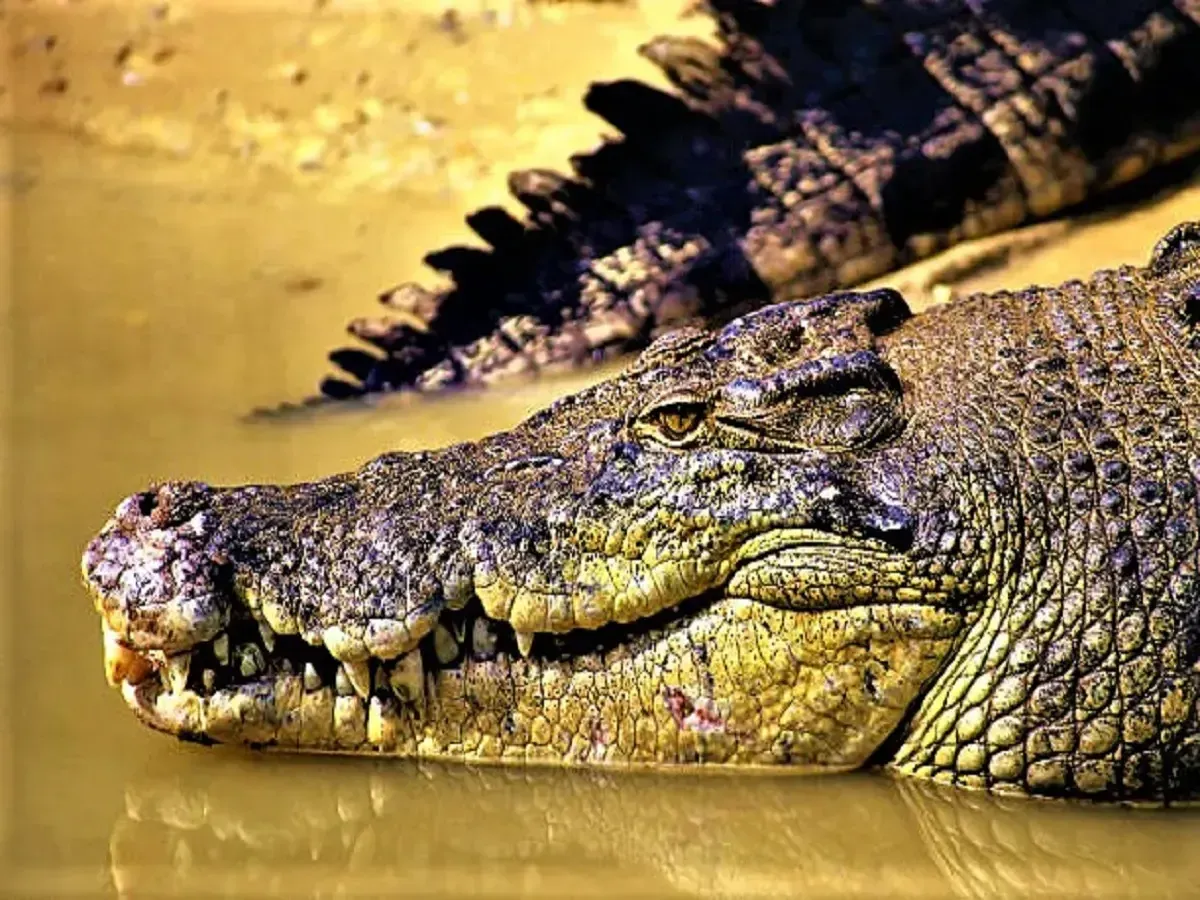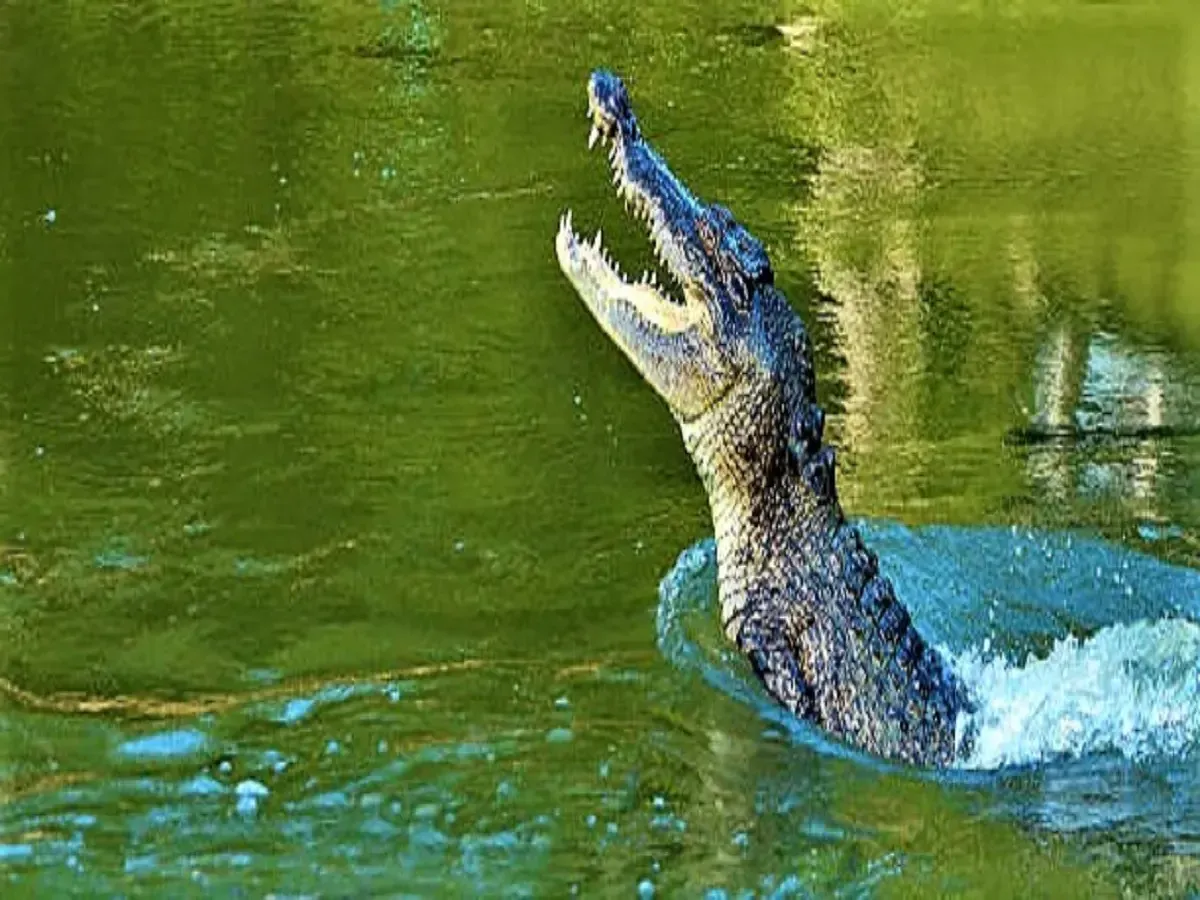The lifespan of a crocodile depends on its species; according to the animal kingdom, some, like the pygmy crocodile, can live to be around 40 years old, while others, like the Nile crocodile, can live to be 80 years old. Live gives Nile crocodiles a longer lifespan than many other crocodiles that live between 40 and 60 years. For example, Nile crocodiles live between 60 and 70 years, just like American crocodiles.

Saltwater crocodiles
have a long lifespan, with many living over 65 years - longer than any other crocodile species. Crocodiles can live up to 70 years in the wild, with the saltwater crocodile being the longest-lived species.
Crocodiles are carnivores and some of them are known to be extraordinary hunters, such as saltwater crocodiles and Nile crocodiles, which are also one of the largest crocodile species (they can reach 1000 kg). Crocodiles are carnivores, feeding primarily on vertebrates such as fish, reptiles, birds, and mammals, and occasionally on invertebrates such as mollusks and crustaceans, depending on species and age. Although this is a species that has been on Earth for hundreds of millions of years, they are still fairly mysterious to us. During the Eocene, about 55 million years ago, crocodiles parted ways with other crocodiles.
The ancestors of these animals, the pseudocrocodilians, lived 230 million years ago. Despite the size of the modern crocodile family, the crocodiles that lived in prehistoric times were much larger. This large crocodile may no longer exist due to an extensive search for larger specimens.

Sarcosuchus
According to fossil evidence, the longest-lived crocodile is the Sarcosuchus imperator, which weighed 17,600 pounds (7,983 kg) and was 40 feet (12.1 m) long. The largest living crocodile on Earth — and, according to some, the animal most likely to eat a human — is the saltwater or estuarine crocodile. Lolong is about 100 years old and descended from a species of saltwater crocodiles (Crocodylus porosus).
The Nile crocodile (Crocodylus niloticus), or estuarine (or saltwater) crocodile (C. porosus), is 6 meters (about 20 feet) long and can live to be 80 years old. While most crocodiles make headlines due to their intimidating size, crocodiles have long lifespans that can reach over 100 years. The average lifespan of a crocodile is 50-75 years. The average lifespan of a crocodile is 70 to 100 years, while the average lifespan of an alligator is usually 30 to 50 years.

The average lifespan of a crocodile?
is said to be around 30-40 years. When it comes to American crocodiles or alligators, the average age ranges from 30 to 50 years. Alligators and caimans are thought to have an average lifespan of 30 to 60 years, while true crocodiles live 50 to 75 years. Captive crocodiles have been known to reach ages of 70 or more, but lifespan in the wild is poorly understood.

When do crocodiles die?
Crocodiles in zoos die over time, although they are kept in good condition, they have shown an extremely long life. Crocodiles are not the only animals that can live much longer than a century. While crocodiles cannot die from natural aging, they also cannot live forever. They continue to grow throughout their lives and require more and more food.
In captivity, crocodiles eat small animals already killed for them, such as rats, fish, or mice. Technically, Nile crocodiles can go years without food, but most crocodiles don't wait that long. According to "Crocodiles" written by Anna Welsbacher, crocodiles can live without food for up to a year. Their body fat can actually provide them with energy for an extended period of time.
Crocodiles - are polyphyodons; they are able to replace each of their 80 teeth up to 50 times in their lifetime of 35 to 75 years. Crocodiles are not immortal, but they do not have a fixed lifespan. The average lifespan of crocodiles varies, with 13 different species found in Africa, Asia, the Americas, and Australia. Although the life span of the crocodile in the habitat and in the wild is little known for this species, captive crocodiles live up to 70 years.
Crocodiles essentially remain the same by the time they reach maturity for the rest of their lives, giving them a competitive edge that others lose as they age. In addition, the average lifespan of saltwater crocodiles is 70 years, and there are unconfirmed reports that some of them have reached the age of 100 years. Despite this, freshwater crocodiles such as Mr. Freshy are still often seen as a threat and are killed, inflicting long-term injuries and months of suffering before slowly dying.

Are crocodiles dangerous?
The larger species of crocodiles are very dangerous to humans, mainly due to their ability to strike before a human has a chance to react. Occasionally, a member of one of the larger species will eat a person, although such cases are so rare that crocodiles cannot be considered cannibals at all. Because of this extraordinary rejuvenating factor, crocodiles are often referred to as living fossils.
There are other factors that can affect a crocodile's lifespan. Lifespan estimates for wild crocodiles are based on growth rates, and limited studies of skeletal growth rings suggest that wild and captive crocodiles may have similar lifespans. That age record may have been held by a three-meter (9-foot) crocodile that was kept in captivity in Russia for more than a hundred years before dying two decades ago. The oldest Nile crocodile is 56 years old but in captivity, according to the Animal Aging and Longevity Database.
American alligators long periods sexual maturity female crocodiles larger crocodile brackish waters long time dwarf crocodile freshwater rivers living reptile largest species tropical climates adult crocodiles natural predators alligator mississippiensis oldest crocodiles.
